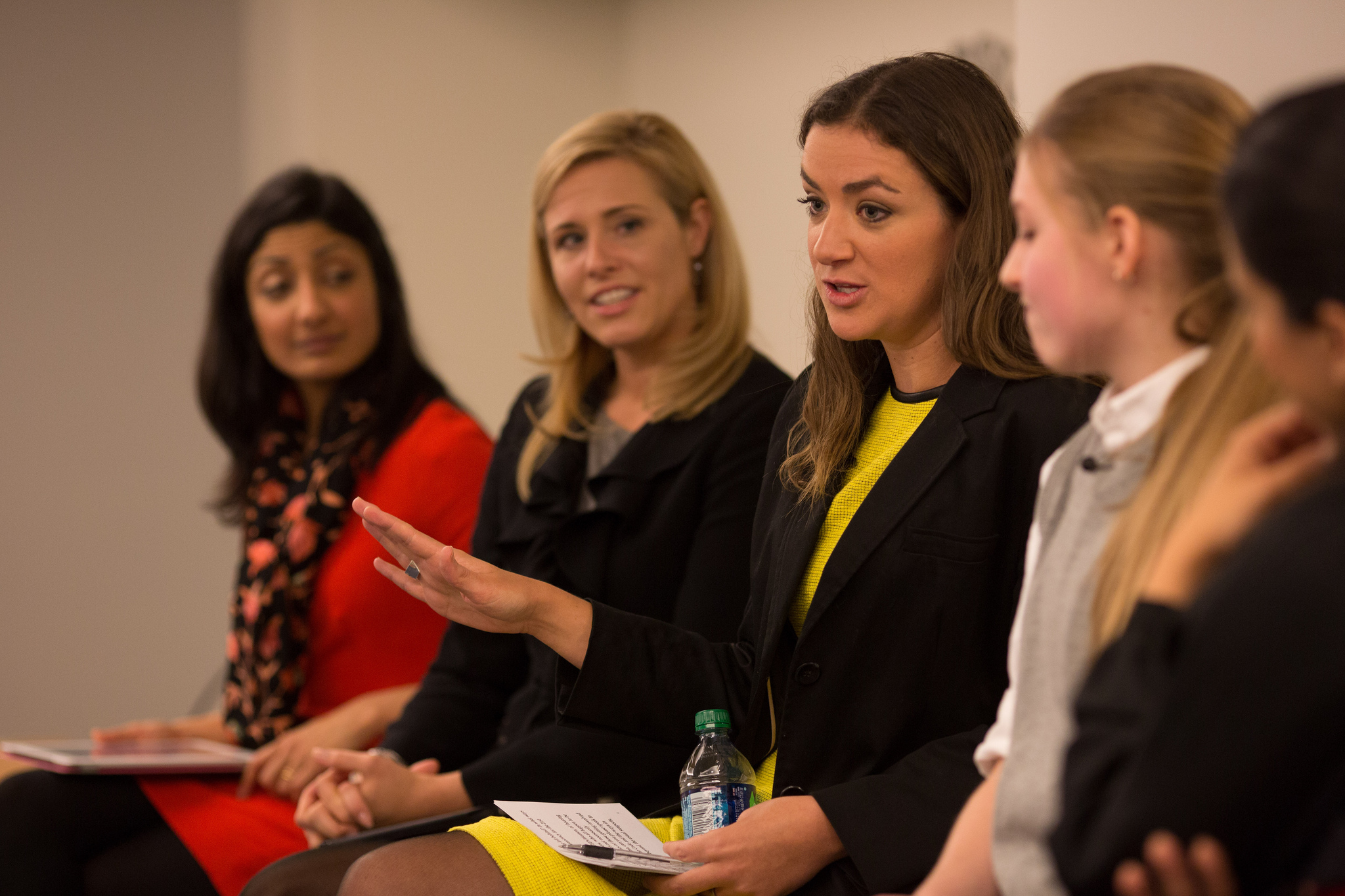
@TEDxWomen – Going from +1 to pushing for change

Courtney Martin, an author and strategist, leads a TEDxWomen panel in a discussion about the “Power of Technology to Transform Democracy.”
These days, people have become comfortable pressing “like,” plus-ing 1, and voicing their opinions online. Yet turning that voice into action is a different, more difficult task.
Panelists at TEDxWomen luncheon Saturday offered several ideas for how people can take that extra step to influence their communities and governments.
Moderated by author Courtney Martin, the discussion was part of a Knight Foundation-organized panel on the possibilities for using technology to transform our civic lives.
The main insights on moving from voice to influence:
1) Plug into an existing community, and use stories to move people: The Harry Potter Alliance uses the stories of the novels and the fans who follow them to do good. The series has so many parallels to civil rights issues, said the alliance’s Lauren Bird, citing the fact that Harry himself was forced to live in a cupboard for years on end. Using these stories of discrimination, the alliance has organized fans around LGBT issues – including motivating 3,000 people to phone bank for marriage equality in Maine, which ultimately passed.
2) Teach girls to code: Learning to code gives girls confidence and an understanding of the power of technology to make a difference, said Reshma Saujani, founder of Girls Who Code, which equips teenage girls with the skills and resources to pursue opportunities in technology and engineering.
“Girls need confidence,” she said. “We can give them that confidence by teaching them that they can do anything. Coding teaches that and gives them tools.”
At ElectNext, a platform that matches voters to candidates, the team participates in a Google Hangout each Saturday morning to have fun and learn code, said founder Keya Dannenbaum. Anyone can freely access coding courses at codeacademy.com, she said, adding that women and girls can come together to learn.
“Learn to code and find a girl or women to learn to code with you,” Dannenbaum said.
Panelists also named several platforms and projects that are beginning to show the potential technology has to improve our relationships with our neighbors, leaders and governments. Much of the innovation is happening at the state and local level, said Marci Harris, co-founder and CEO at POPVOX, which brings personal stories and opinions from citizens to their legislators.
Harris cited Code For America, whose fellows bring resources and solutions in technology to cities, as a leader in that space.
While there are still a variety of challenges, though, perhaps the largest is digital access. Saujani said that when her 8-week coding camp comes to a close, she needs to send half the girls a computer.
Still, the panelists offered advice on what people can do to use technology to take action in their own lives. Bird emphasized that it’s important to remember the power of one’s voice.
“Don’t hesitate,” Bird said. “Don’t think that you don’t know enough, can’t blog or tweet, or that you’re too young. Technology is an equalizer.”
View the video of the panel below.
By Jenna Buehler, executive assistant/communications at Knight Foundation
Recent Content
-
Community Impactarticle ·
-
Community Impactarticle ·
-
Community Impactarticle ·


